Warning: This post contains spoilers for Game of Thrones season 8.
Game of Thrones is a rare example of mass entertainment that took the time to build compelling character arcs over the course of several seasons. The redemption of Jaime or the Hound were slow, carefully plotted evolutions — until they weren’t.
So Daenerys’ turn from hero to villain should have been a triumph of plot development. If the showrunners wanted to argue that power corrupts everyone, carefully tracing Daenerys’ descent from Breaker of Chains to Mad Queen killed by her lover could have been a smart, honest, compelling storytelling choice.
Instead, the creators of the show decided to evolve Daenerys’ increasing paranoia over the course of just a few episodes, let her snap in a second and punish her for that misstep by having Jon murder her a mere episode later. The shift was so abrupt that even actor Emilia Clarke admitted to struggling with it, saying in a recent interview that she still “stands by” Daenerys. “If I were to put myself in [Jon Snow’s] shoes,” she said. “I’m not sure what else he could have done aside from … oh, I dunno, maybe having a discussion with me about it? Ask my opinion? Warn me?”
Daenerys, along with Tyrion and Jon, had spent years as the underdog — one of the “cripples, bastards and broken things” who could defy others’ expectations. In a world where women were often treated as disposable objects, Daenerys outwitted and overpowered her male enemies. As the sole protagonist in her own storyline, far from the rest of the characters, she was set up to be one of the few unambiguously heroic figures in the series.
And then, in the penultimate episode of season 8, viewers saw her snap in just one shot. As explained by the showrunners in the post-episode breakdown, Daenerys saw the Red Keep, became enraged and made a decision to do what she’d never done before: Kill innocent civilians without reason.
Yes, that was terrible. But the Mad King Aerys’ people spent years suffering under his draconian rule before Jaime stabbed him in the back. Olenna spent months plotting Joffrey’s poisoning. Even the Night’s Watchmen who killed Jon must have had a handful of meeting deciding what they were going to do before they murdered him. But after just one pep talk from Tyrion about how someone really ought to stop that crazy lady, Jon was able to walk up to an inexplicably unguarded Daenerys and stab her? The Mother of Dragons left not with a bang, but with a whimper.
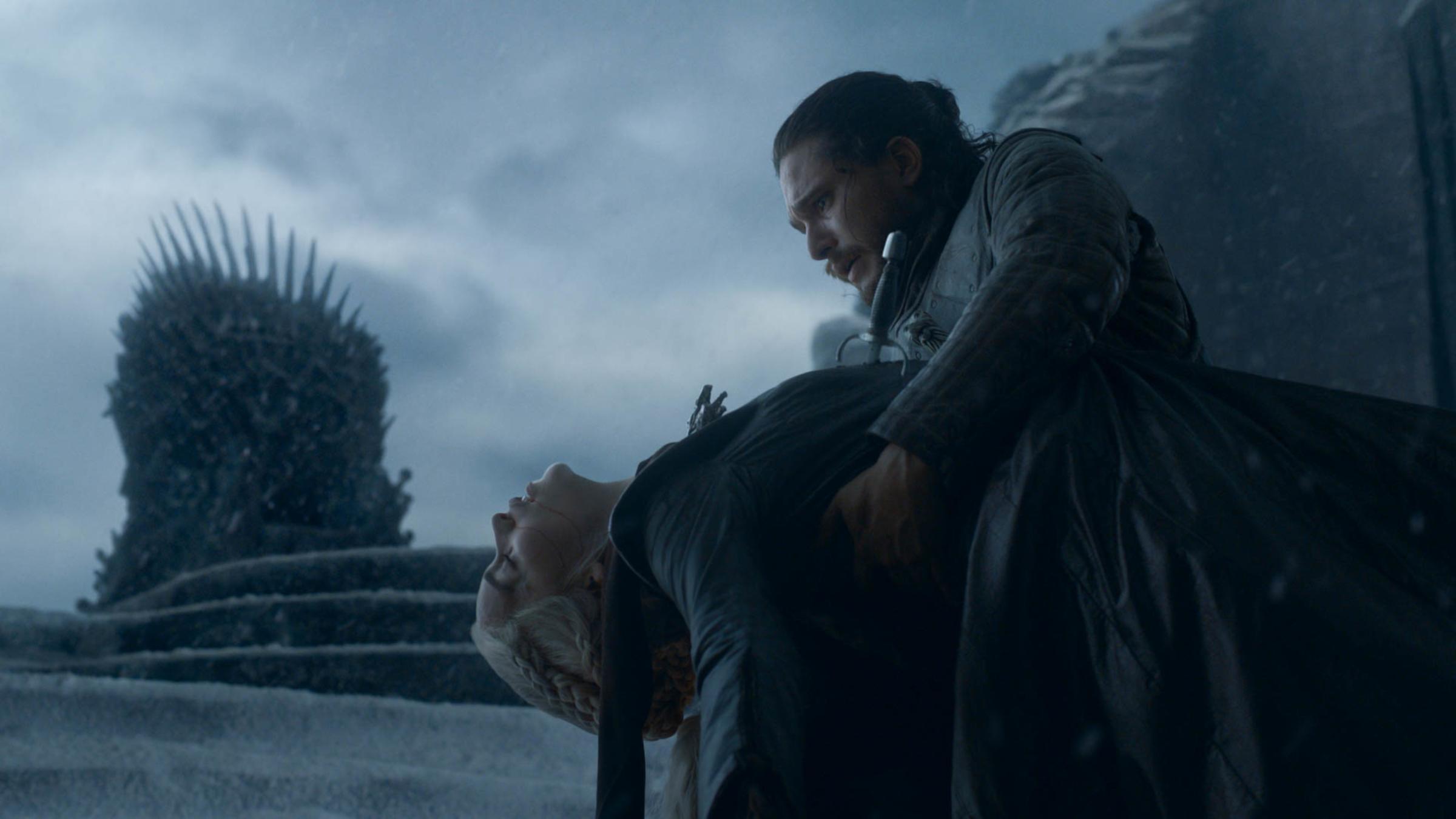
It’s difficult to separate many fans’ frustrations with Daenerys’ treatment this season from the makeup of the writers’ room: The writers and directors on the show have always been overwhelmingly male, and women were shut out of both writing and directing jobs for every episode in season 8.
Let’s analyze how, exactly, Dany wound up where she was on the season finale on Game of Thrones.
Daenerys lived her life by a code of justice — for better or worse
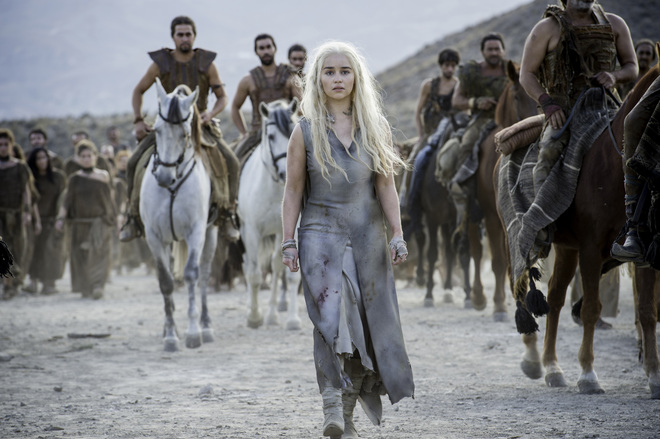
Daenerys was singleminded in her pursuit of the Iron Throne. Many critics have rightly pointed out that the character always had a messiah complex: She freed slaves and punished slavers under the rationale that she was bringing peace to the world. Of course, this is the logic of many Western rulers who commit atrocities in the name of benevolent rulership or democracy, and that alone should have hinted at her hypocrisy and eventual downfall.
And yet in the first few seasons of Game of Thrones Daenerys is largely portrayed as a hero. Throughout her life, Daenerys showed a commitment to justice. We met her in a series of scenes during which her brothers told her he’d let thousands of men rape her in order to attain the Iron Throne. After that, she dedicated herself to helping others who had been mistreated.
She tried to stop the raping and pillaging that the Dothraki wrought on their conquered peoples, including the witch Mirri Maz Duur, ultimately losing her husband and child as a result. She freed the slaves in Meereen. When Drogon burned one child, she chained up her other two dragons, leaving herself more vulnerable and stunting their growth in the long-term. She put her mission for the Iron Throne on pause to fight in Jon’s war against the White Walkers.
She was called the “Breaker of Chains” for a reason. When she misstepped, we forgave her, as we forgave, say, Tyrion for strangling Shae.
Daenerys never burned people without some rationale
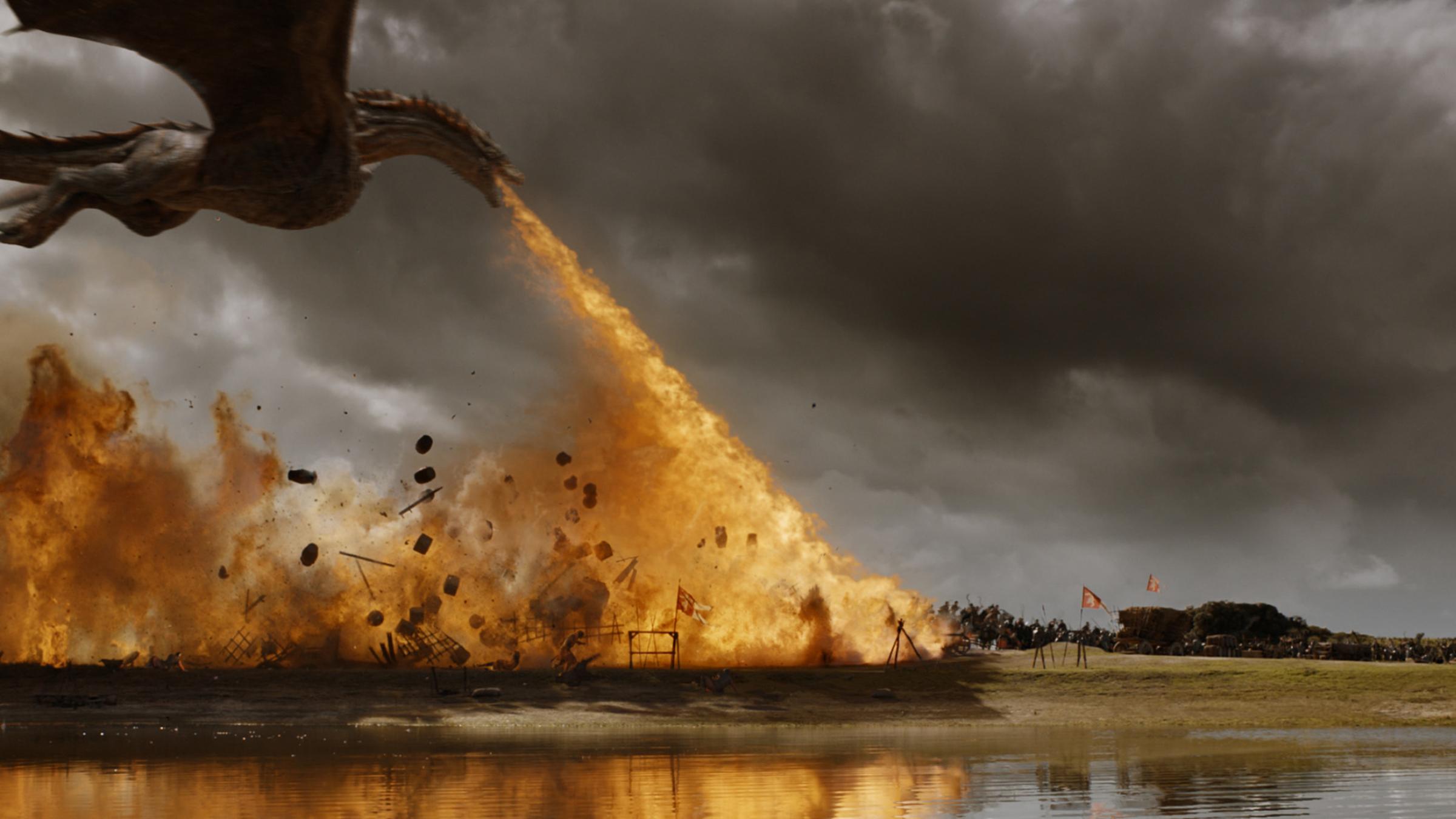
Daenerys certainly used “Dracarys” to punish plenty of people during her reign. But, up until the sack of King’s Landing, she always gave some compelling reason for doing so.
She first used her dragon’s fire to kill a warlock who tried to imprison her, and again against a slaver who tried to cheat her. She arguably became overzealous when she crucified all the masters in retaliation for them having killed slave children — but they had killed children. She burned all the Khals who were threatening to keep her as a slave or rape her, or both.
Her resolve to only burn those who were truly bad became somewhat muddied in season 7. She burned Randall and Dickon Tarly alive instead of taking them prisoner when they wouldn’t bend the knee. Still, that act wasn’t out of character for rulers in this world, even if it was not merciful or politically wise. Ned Stark and Robb Stark executed his men for disobeying their orders, too.
Daenerys’ advisors gave her terrible advice
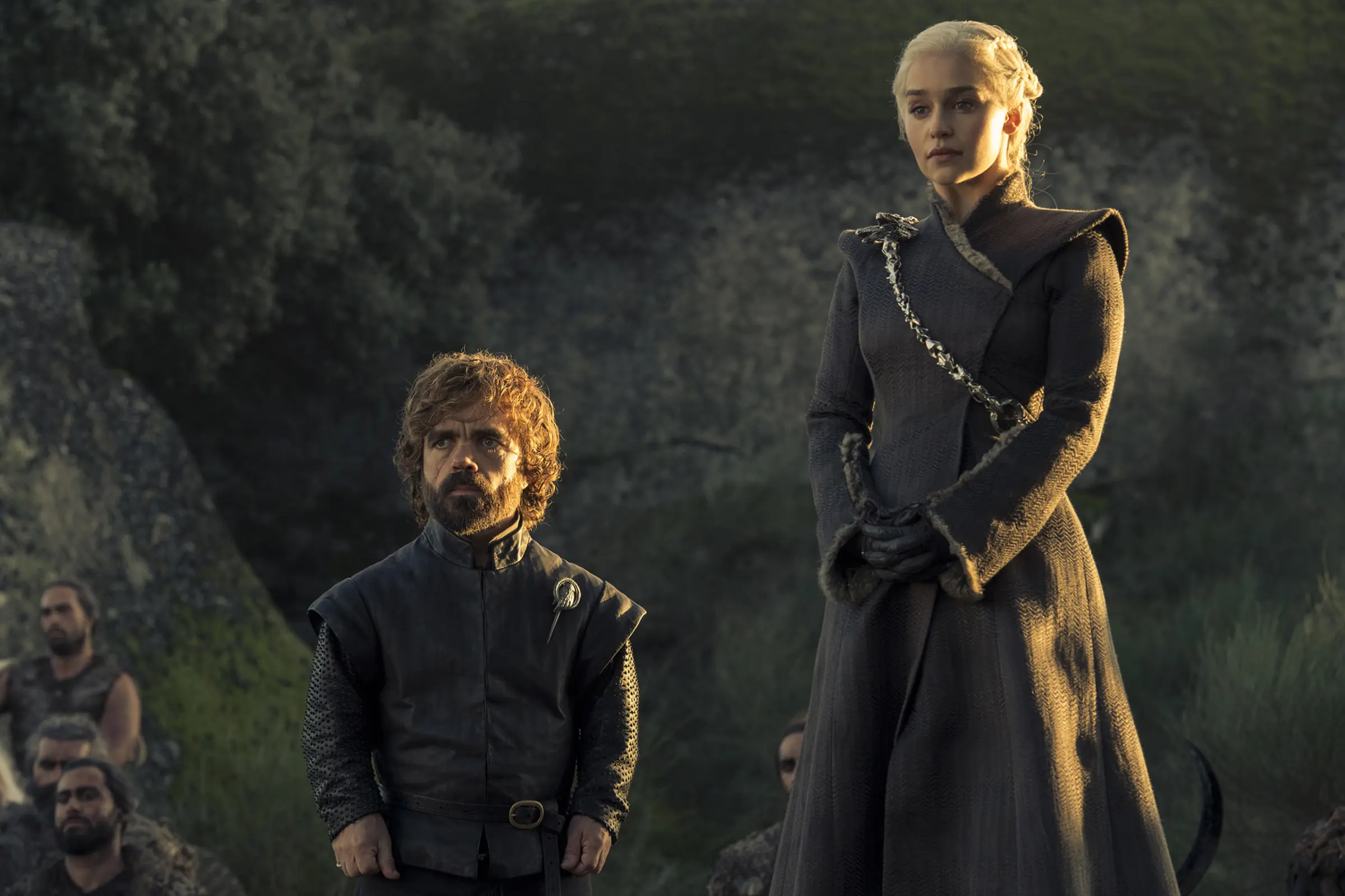
Daenerys agreed to make Tyrion her hand because Tyrion said he “knew things” — specifically, he claimed to know how to make alliances in Westeros and exploit people’s hate of Cersei in order to put Daenerys on the throne. Except, Tyrion did…none of that. Once they crossed the sea, when did Tyrion convince a single lord that if they joined Team Daenerys, they could get a new title and see the land’s most hated woman burned to a crisp? Never.
Here’s what Tyrion did do: Tried to cut a deal with slavers that would have kept slavery legal for a longer period of time, until Daenerys decided to burn their ships instead; convinced Dany not to fly to King’s Landing and burn the Red Keep, which would have resulted in far fewer Kings Landing deaths; came up with the horrible plan to capture a wight that almost got Jon killed, lost Daenerys a dragon and still didn’t earn Cersei’s allegiance; convinced Daenerys to trust Cersei, who had never proven herself to be trustworthy; forgot to remind Daenerys that Euron and the Iron Fleet would almost certainly be waiting near Dragonstone, thus losing Daenerys another dragon; freed Jaime from captivity in an effort to help both his brother and Cersei escape death at Daenerys’ hands.
That is a terrible track record. Don’t even get me started on Varys, who didn’t write a single letter to a single lord to gain intel against Cersei or an ally for Dany but did find time to spread the word about Jon’s true parentage.
Daenerys, while a formidable fighter and self-nickname-giver, has never been great at strategy. It took her almost the entire show to get the situation in Essos under control. Tyrion and Varys were supposed to be her helpers. They failed her. Instead of admitting to the part they have both played in Daenerys’ downfall, Tyrion and Varys began to call Daenerys paranoid when she rightly lost faith in her advisors’ decision-making abilities.
Her fight with Sansa was a waste of time
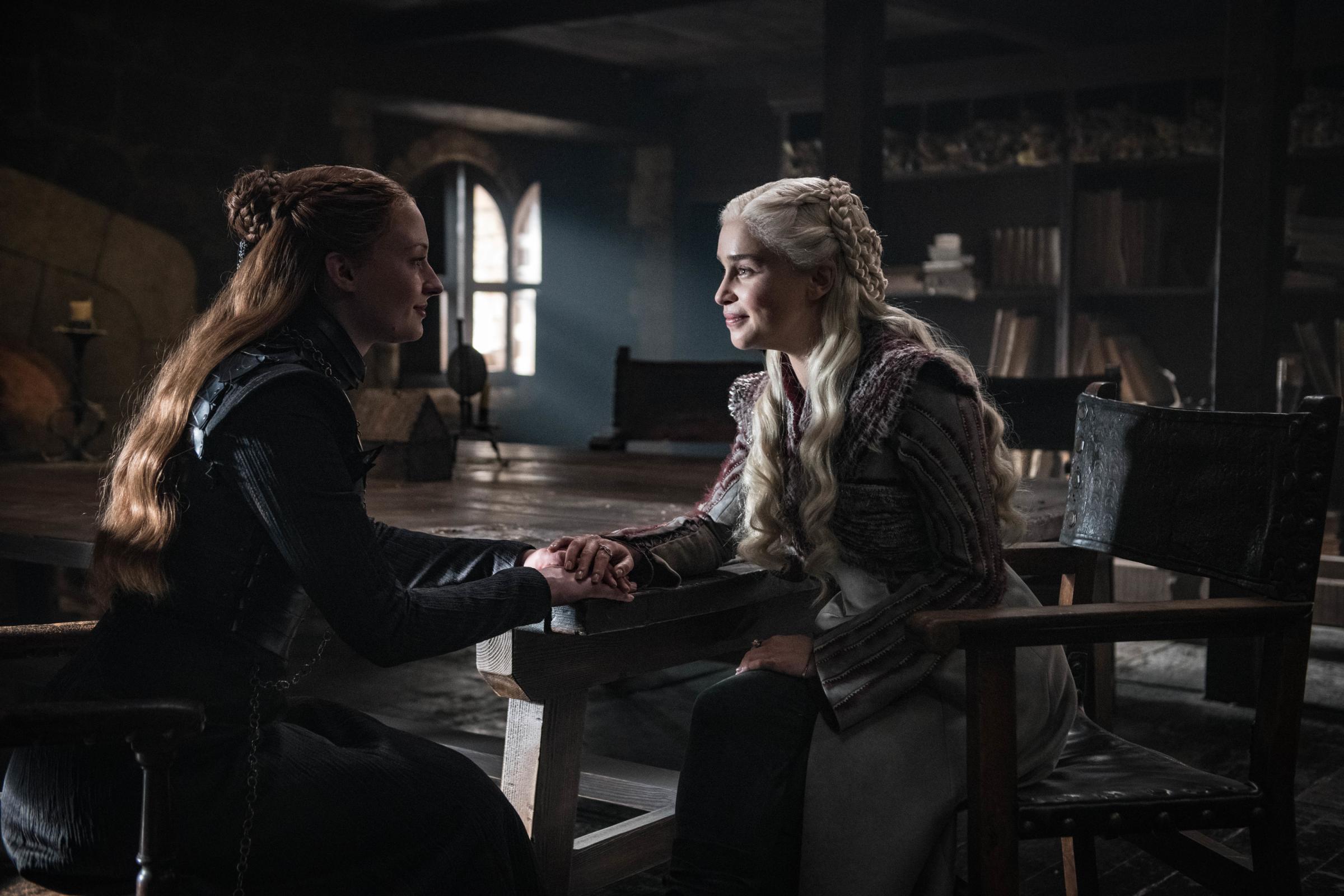
Sansa and Daenerys sniped at each other from their very first meeting. Their initial distrust made sense: Starks do not fare well in the presence of Targaryens. And Sansa felt betrayed when Jon bent the knee to Daenerys without consulting the North first. And from Daenerys’ perspective, it was easy to see why she would be reluctant to let the North be independent. Every fiefdom would come calling for their freedom.
And yet the writers of the show cited much more petty reasons for their conflict. Dave Hill, who wrote the premiere episode, gave this explanation of the Daenerys-Sansa meeting to Entertainment Weekly:
“[Daenerys is] also very pretty, and how much does that factor in? Sansa starts off this season very suspicious and not at all friendly with Dany.”
To the show’s credit, Sansa grew into a powerful politician — one who presumably would dedicate her mind to matters other than Dany’s looks. This would all be tiresome but not particularly relevant if the show had not relied so heavily on Sansa’s distrust of Daenerys to turn the audience against the Mother of Dragons. As it stands, fans were asked to buy into this sexist argument.
The show isolated her in Westeros and completely forgot about her allies in the East
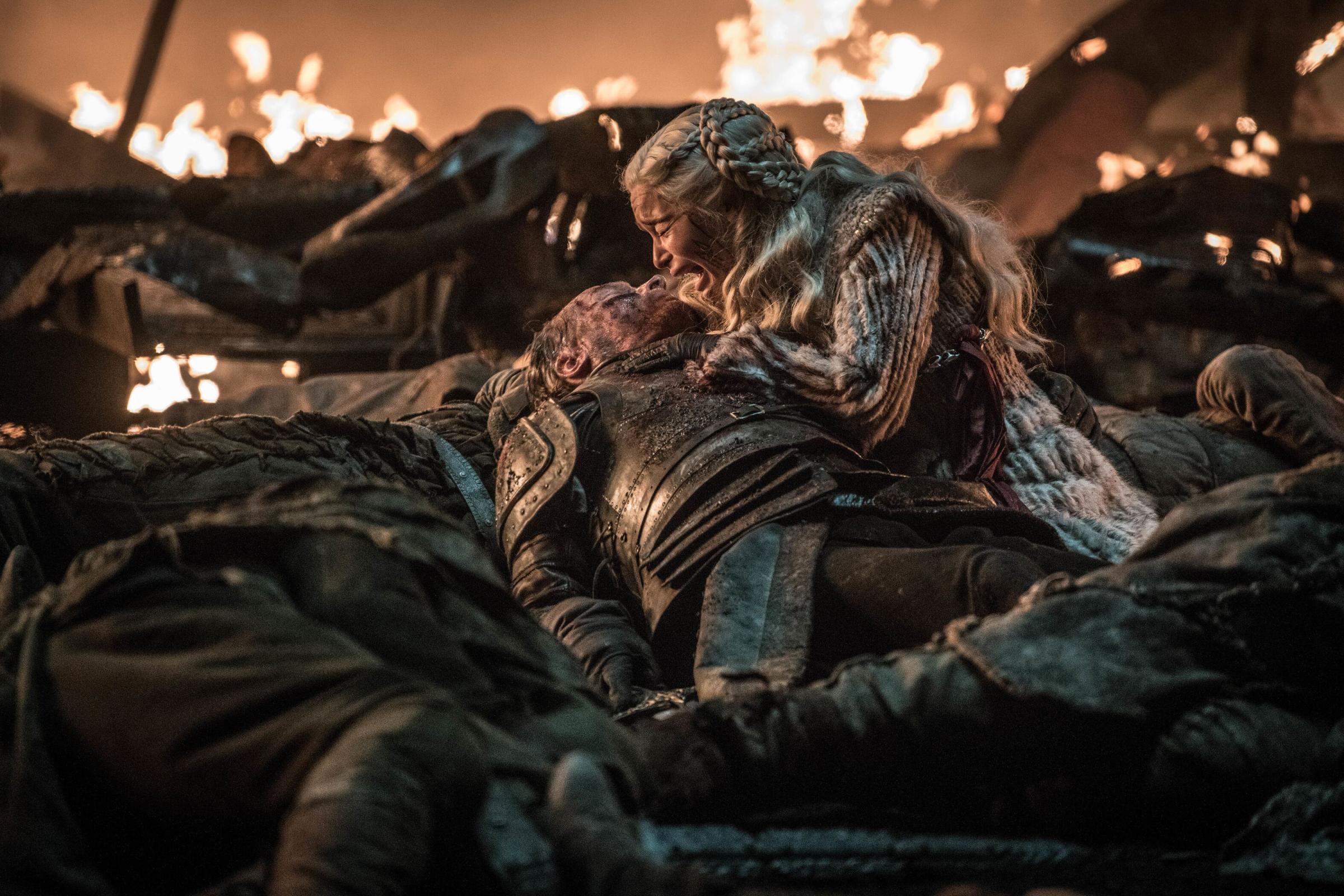
In the last few episodes, Daenerys found herself envying the love that Jon’s people feel for him. An orphan, she had always sought out affection in the world — from the Dothraki, from Khal Drogo, from Jorah, from Jon, from her people.
So it was destabilizing for her to arrive in Westeros and find that people were not eager to embrace her. Why, exactly, the Northerners didn’t appreciate her dragons — without which they could not have defeated the Army of the Dead — was not totally clear. Daenerys rightfully glowered at Jon as his countrymen celebrate the fact that he mounted a dragon a couple of times when Dany has been riding one for years. That was just rude.
In a mission to make Dany feel as isolated as possible, the show killed off her closest advisors, Jorah and Missendei. But Dany was still loved — her people (and reinforcements) just lay elsewhere. Daario was controlling Slaver’s Bay in her absence. Yara Greyjoy was sworn to her. In theory, the new Prince of Dorne would have been allied with her since Daenerys struck a pact with Ellaria Sand. Daenerys could have called on any of these allies when she faced Cersei’s army but didn’t — simply because the show needed her to be alone when she made her dark decision.
The show used Missendei as a plot device
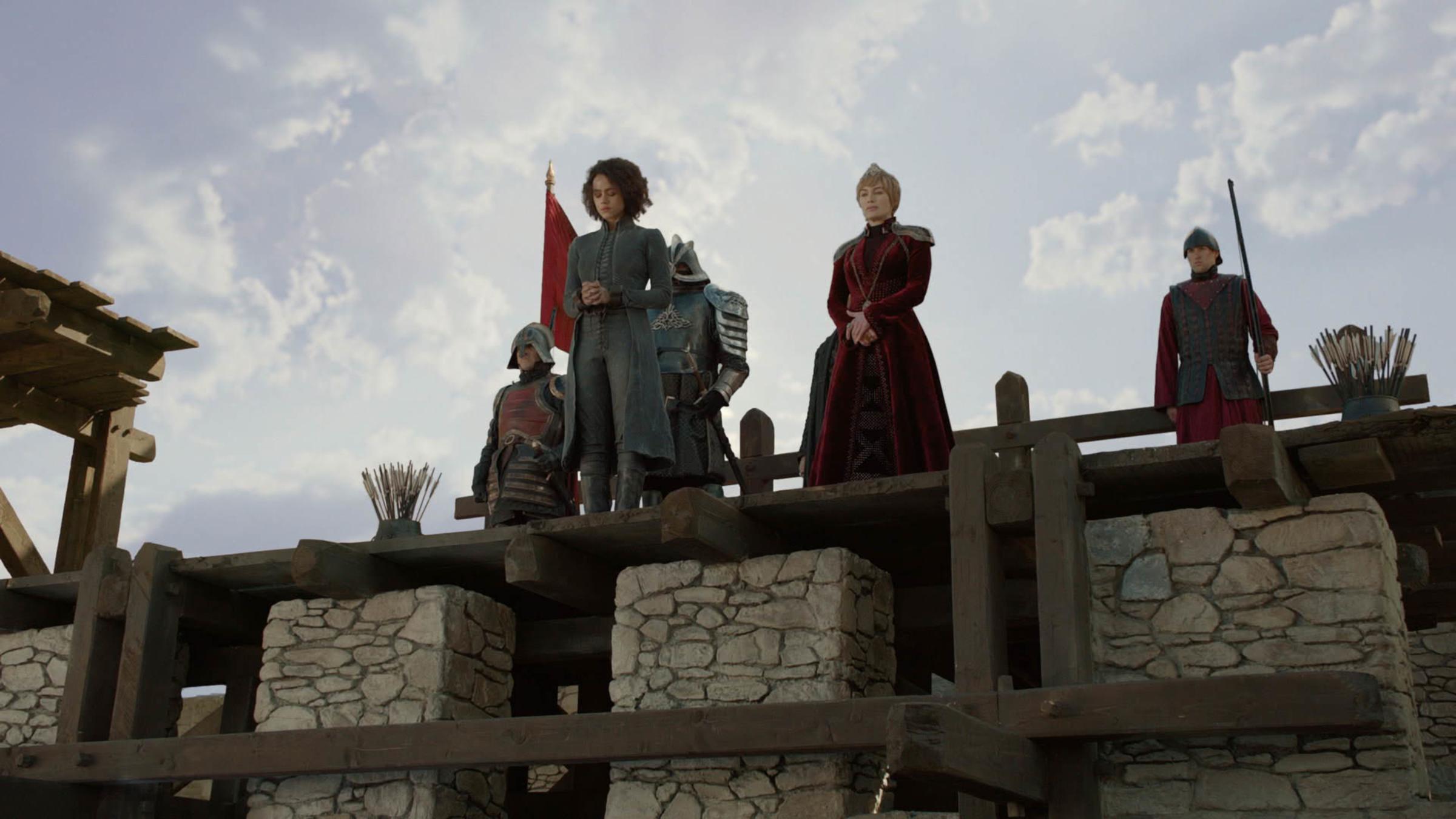
Game of Thrones fridged Missandei. There’s no other way to put it. The writers wrote her capture and death into the third-to-last episode just to motivate Daenerys to burn down King’s Landing. The fact that the writers turned the only major black female character on the show into a plot device feels even more cringeworthy.
The death might have felt more earned if we had, as Missandei actor Nathalie Emmanuel herself suggested in a recent interview, seen more scenes of Missandei and Daenerys alone in recent seasons. Over the last four seasons, the two shared few conversations, and nearly all of them centered on sex or men rather than, say, Dany’s sadness over losing a dragon or the complicated politics in the North.
The show used Daenerys’ genes as a quick excuse
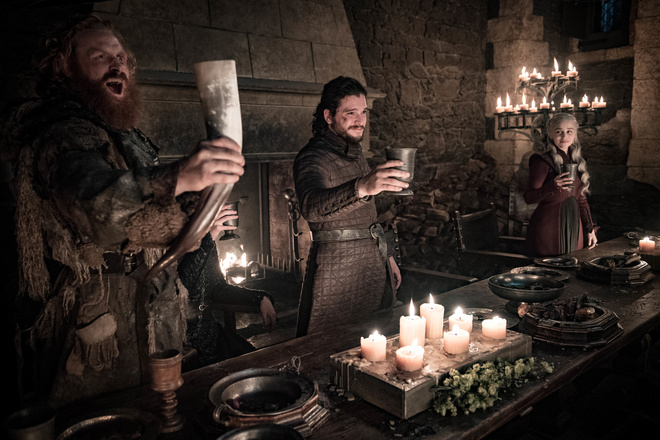
The fairly quick transition from complicated hero to totally mad villain leaned heavily on an oft-repeated line: every time a Targaryen is born, the gods toss a coin. But should Daenerys’ Targaryen blood necessarily doom her? After all, Jon is half Targaryen, too. So why does he get to sit comfortably on the other side of the coin?
The show was obsessed with various characters’ struggles to shake their family’s legacies. Tyrion killed his own father and joined Team Daenerys, only to betray Dany to help his family again. Jon struggled to figure out whether to ally himself with his Stark siblings or the Targaryen aunt. And, of course, Daenerys long tried to differentiate herself from her father, the Mad King, only to become her father’s daughter.
The message that these characters are ultimately tied to their familial roots seemed to conflict with the “cripples, bastards and broken things” ethos that ruled the show for so long: Against all odds, Daenerys literally rose from the ashes to become a hero. But what was the point of all of that if her DNA was always going to determine her fate?
Her paranoia about being conspired against was justified
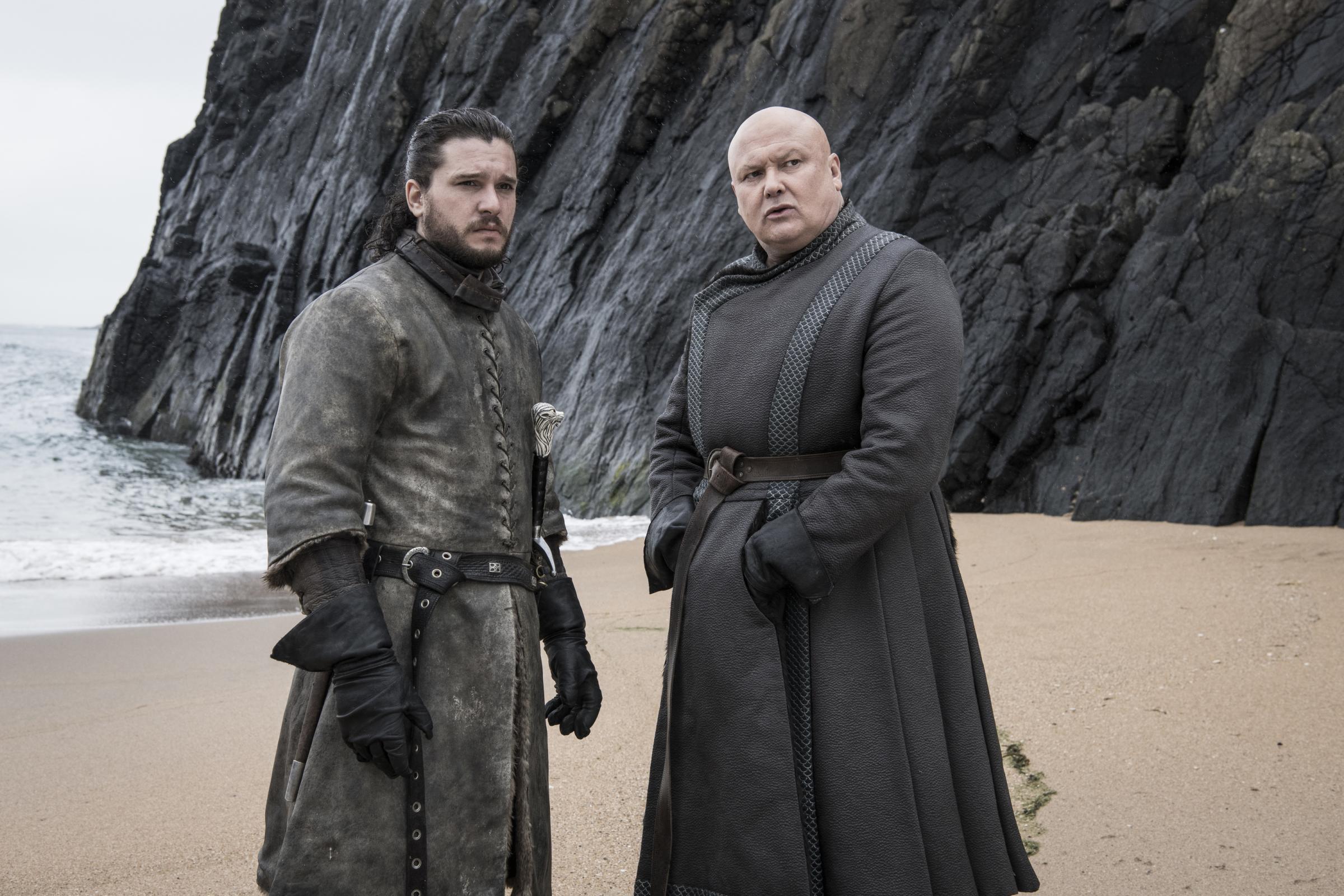
One of the show’s most recent plotting flaws was Varys’ rushed decision that Daenerys was so evil that he needed to murder her — quite a stretch for a man who served under King Joffrey. Remember that Varys once wanted to put Dany’s brother Viserys, a demonstrable megalomaniac, on the Iron Throne. And Varys was the very person who encouraged Tyrion to advise Daenerys in the first place.
We don’t know exactly when his opinion changed. Varys began to suspect something was amiss after the battle against the Army of the Dead when Daenerys jealously gazed at Jon being toasted by his followers. By the following episode, when Varys found out Jon was a Targaryen, he began openly trying to overthrow Daenerys. He accused the Queen of being paranoid while simultaneously conspiring against her, giving her every reason to be suspicious.
Again, it’s a sign of the show’s pacing problems in the final season that the man who was once revered as Master of Whispers walked up to Jon in the middle of a crowded beach and suggested he usurp the queen. In past seasons, this undermining might have taken place slowly with coded letters and subtle suggestions. By the final season, Varys was essentially asking to be caught. At least his attempts at poisoning Daenerys were somewhat subtle.
Other rulers we think of as heroes in this story have executed men for less than attempted murder. Robb Stark executed Rickard Karstark for killing the Lannister hostages, against Robb’s orders. Ned Stark executed someone for abandoning the Night’s Watch. Jon Snow executed the men who succeeded in murdering him (before he was resurrected) including Olly, a young boy.
And Daenerys’s other allies berayed her too. Jon betrayed her trust by telling his family his true parentage. Tyrion betrayed her twice by hiding his conversations with Varys from her and then freeing Jaime from captivity. Davos also betrayed her for inexplicable reasons by helping Tyrion smuggle Jaime to Cersei. Her advisors lied to her and gaslit her, plain and simple. And yet the way that Daenerys’ destruction of King’s Landing was shot, we are supposed to see her as the irrational one and Tyrion and Jon as the victims of her terror.
This wasn’t a progression — she snapped
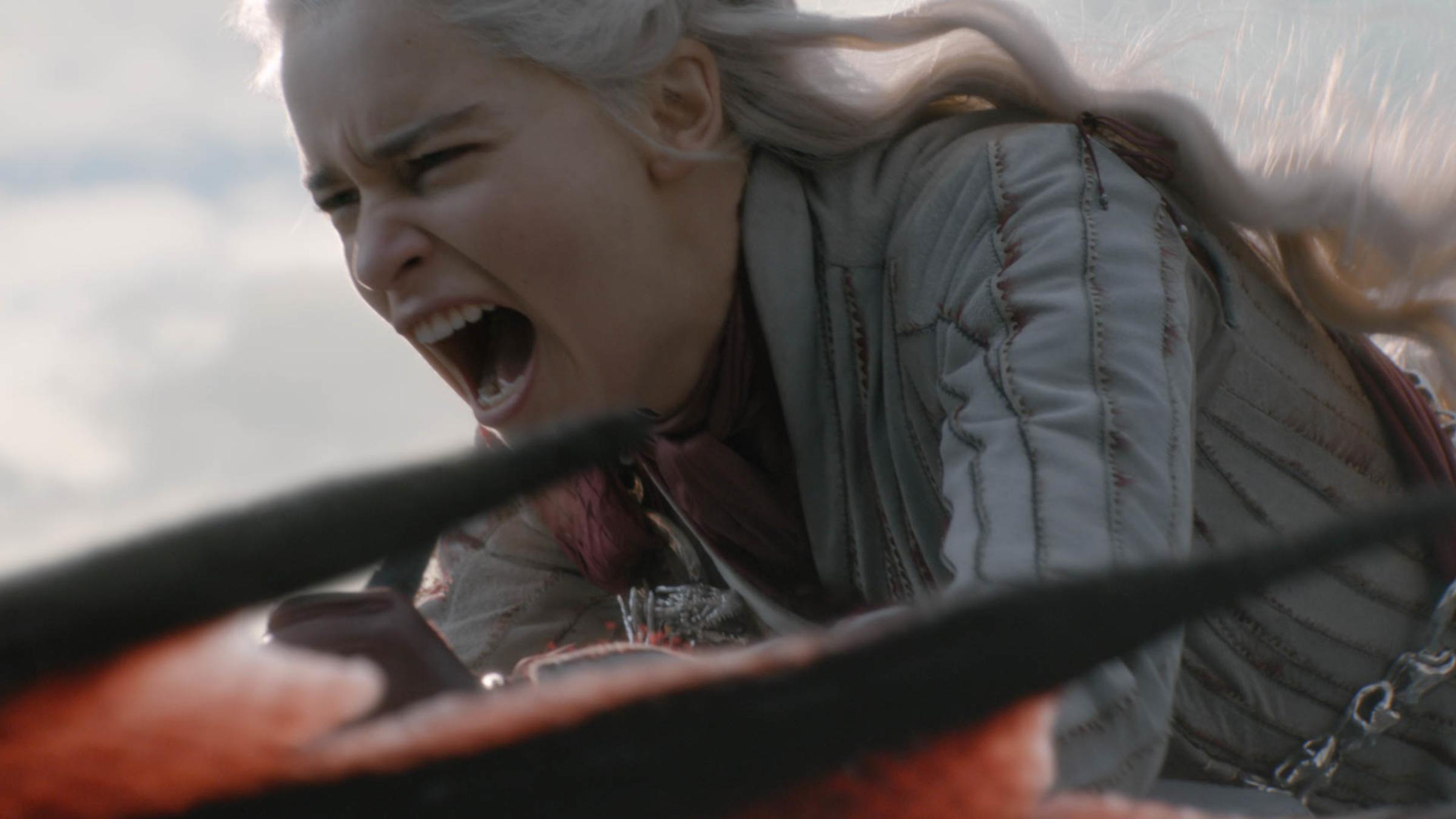
The most blatant proof that the show had not built in enough narrative to get Daenerys to the place she needed to be to burn King’s Landing came in the “previously on” segment before the penultimate episode. As Daenerys fumed over Missandei’s death, the show played audio warnings from past seasons describing the madness of Tagaryens in general and, more recently, Dany in particular. The writers needed this moment in order to explain and justify to the audience what was about to happen: they didn’t trust the audience to believe the story on its own. That’s a problem.
When Tyrion and Daenerys discussed the attack on the city, Daenerys agreed to stop the attack if the bells ring, signaling that King’s Landing has surrendered. The fact that she assented to these terms suggested that she hasn’t been slowly corrupted into thinking that murdering innocent people was necessary. Rather, she made a split-second decision at the moment the bells rang to become a mass murderer.
Worse, the audience didn’t get to see Dany’s face while she burned the city, and Emilia Clarke did not have the opportunity to sell the moment. Instead, fans had to wait for the post-show commentary, in which the showrunners explained that Daenerys felt she had a hollow victory as she stared at the Keep. But somehow that led to her killing thousands of people? That explanation was not sufficient — and we shouldn’t even have needed an explanation in the first place. Audiences should be able to divine that answer through dialogue and facial expressions in the actual show.
These portrayals play into toxic, sexist tropes
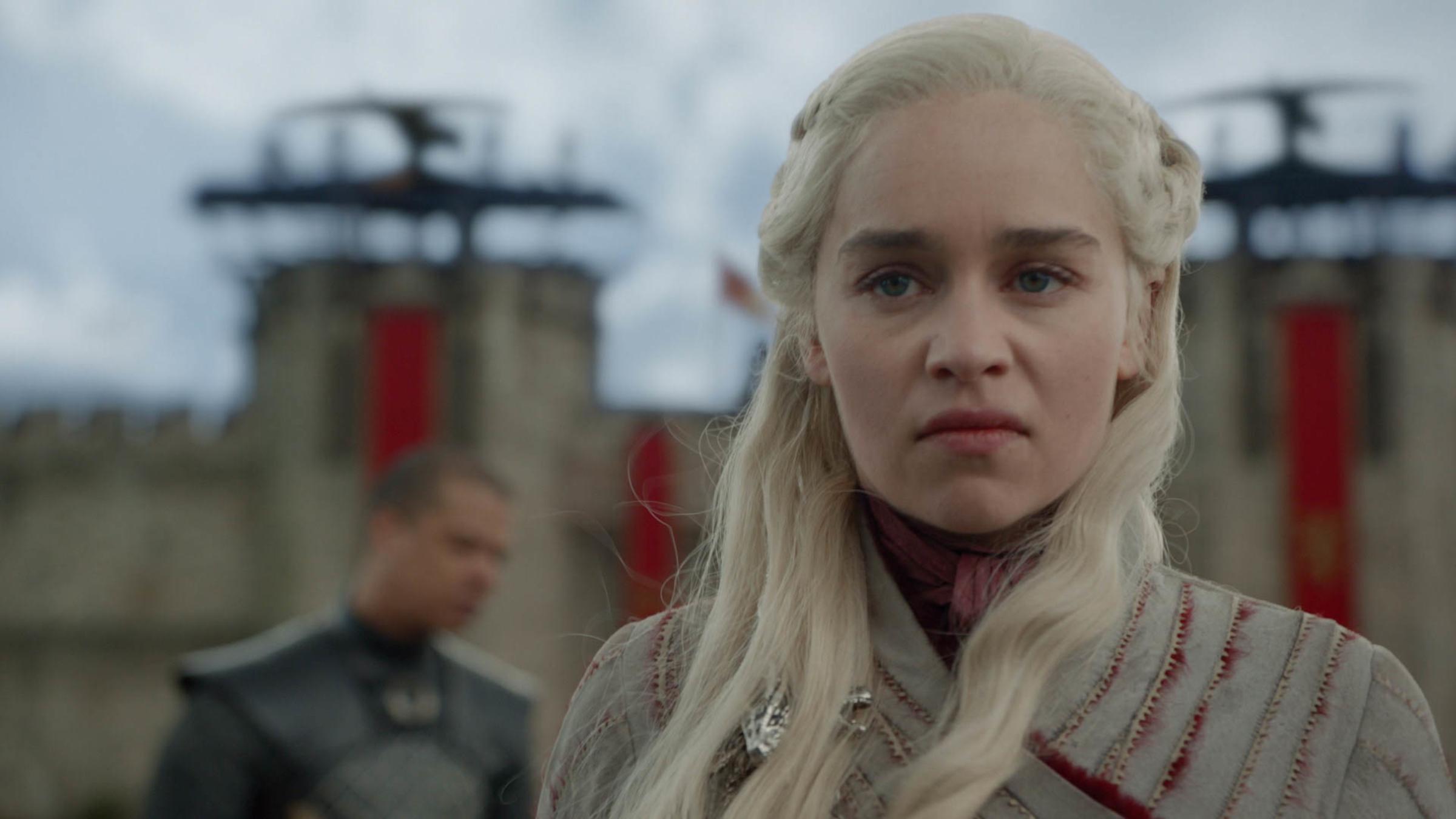
There were plenty of moments in the show that foreshadowed Daenerys’ eventual destruction of King’s Landing: her placid face as her terrible brother died, her crucifying every master in Meereen for the sake of justice, Aemon Targaryen’s line to Jon that a Targaryen alone in the world is a terrible thing.
But either due to time restrictions, lack of source material or just plain lack of creativity, the show took shortcuts this season. And those shortcuts tended to rely on the laziest of sexist stereotypes about crazed, power-hungry women.
In the lead-up to the final episode, Maureen Ryan at the Hollywood Reporter put it best: “Inescapably, infuriatingly, what we’re left with is apparently the central message of Game of Thrones: Bitches are crazy.”
Daenerys’ rage manifested physically in the penultimate episode when she looked wan and unkempt while speaking to Tyrion. She had some interesting dialogue in that scene: Her connection between Varys’ betrayal and Jon’s showed a ruler unmoored, unable to tell her allies from her enemies. Had that paranoia been seeded many episodes earlier and grown over the course of several seasons, Daenerys’ arc would have been an epic Shakespearean tragedy. Instead we had to infer this descent based on her frizzy hair.
Worse, the moment when she seemingly decided to rule with fear, not love, came after Jon romantically rejecting her — again playing into the lazy storytelling tool that “hell hath no fury like a woman scorned.”
Varys suggested that Jon would be a better ruler exactly because he did not want to rule. Figures in mythology and history ranging from Moses to George Washington to Harry Potter have been heralded as heroes because they came to power reluctantly. Those figures also tend to be male. How do our stories cast women eager for power? As evil queens. And Daenerys became a cliché.
There were a lot of problematic characterizations of women in the last season of Thrones, as revealed by the writers’ own commentary surrounding the episodes. In one episode, Sansa essentially parroted what the writers have been saying for years about her rape by Ramsay Bolton — that it made her stronger. The idea that Sansa wouldn’t be as strong or savvy now if she hadn’t been assaulted is problematic to say the least. In other post-episode commentary, the showrunners called Cersei, one of the smartest, most vicious characters on Thrones, “just a girl who needs the comfort of a man” when she and Jaimie died together. This explanation suggested an extreme misunderstanding of that character.
And in the end, Daenerys cycled through several tired stereotypes: Another evil, power-hungry queen literally shot with a dragon’s wings behind her; the crazy lady that a noble man has to heroically overcome; the naive girl who fell for her spurned lovers’ romantic words, even though she should have suspected he was about to betray her. All of the well-written complexity the show brought to Cersei, Sansa, Arya, Brienne and other female characters over the years may not be able to make up for Dany’s too-swift downfall.
More Must-Reads from TIME
- Why Trump’s Message Worked on Latino Men
- What Trump’s Win Could Mean for Housing
- The 100 Must-Read Books of 2024
- Sleep Doctors Share the 1 Tip That’s Changed Their Lives
- Column: Let’s Bring Back Romance
- What It’s Like to Have Long COVID As a Kid
- FX’s Say Nothing Is the Must-Watch Political Thriller of 2024
- Merle Bombardieri Is Helping People Make the Baby Decision
Write to Eliana Dockterman at eliana.dockterman@time.com